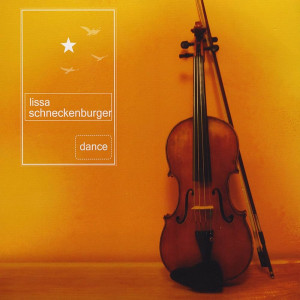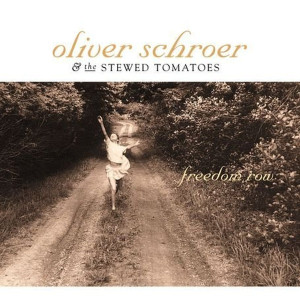 Over the past month or so I’ve been cleaning out my home office. I sold a bunch of stuff on-line. A guitar, 450 vinyl records, three boxes of music magazines, and a violin. The violin was incomplete, there was no sound post, no bridge, no tail-piece, no chin-rest. But it was in pretty nice condition really. I have enough trouble playing guitar and learning to play the mandolin to think about starting another instrument at this point in my life. Especially when there are people like Lissa Schneckenburger and Oliver Schroer around. Of course, Oliver isn’t around anymore … but more on that later.
Over the past month or so I’ve been cleaning out my home office. I sold a bunch of stuff on-line. A guitar, 450 vinyl records, three boxes of music magazines, and a violin. The violin was incomplete, there was no sound post, no bridge, no tail-piece, no chin-rest. But it was in pretty nice condition really. I have enough trouble playing guitar and learning to play the mandolin to think about starting another instrument at this point in my life. Especially when there are people like Lissa Schneckenburger and Oliver Schroer around. Of course, Oliver isn’t around anymore … but more on that later.
Lissa Schneckenburger is a Vermont based fiddler and folksinger. She’s out on tour now to support this new release with acoustic guitarist Bethany Waikman. Waikman is the main accompanist on the album too.
Lissa’s previous album, which I have not heard, was called Song and featured her singing, with a voice the All Music Guide called “pure and clear, full of simple emotion.” The same might be said of her fiddle playing. Her voice is nowhere to be heard on Dance as the album is a collection of ten instrumentals, each piece from the rich tradition of New England, and each with its own dance.
According to Lissa: “These tunes have been played for hundreds of years, and by countless generations…I love the feeling of connecting with the past as we put a fresh take on these timeless melodies. And they are timeless. There’s a sense of time travel invoked by listening to the album but it is rooted firmly in the present by the clarity of the recording and the skill of the fiddler.”
I found my feet tapping, my fingers popping as I listened. The music is subtle, essentially acoustic, just guitar and fiddle for the most part. Although Bethany and Lissa are joined from time to time by a percussionist (Stefan Amidon), piano and accordion (Jeremiah McLane), double bass (Corey DiMario) or banjo (Dave Cory) and a second fiddle (David Kaynor). But there’s always space in the arrangements, for the air to flow, for the instruments to breathe. Each tune includes instructions for the accompanying dance.
For instance, “Petronella” is described as “(Duple, proper) Petronella turns and balances; Actives down the center and back, cast off; Right and left four.”
I don’t have a clue what that all means, but for more instruction the liner notes pointed me to The Country Dance Book by Beth Tolman and Ralph Page, or Cracking Chestnuts by David Smukler with David Millstone. I may  need the help to perfect the reels and hornpipes that Lissa Schneckenburger plays so well.
need the help to perfect the reels and hornpipes that Lissa Schneckenburger plays so well.
Oliver Schroer has been reviewed here before, but Freedom Row is his final album. He passed away in 2008. He had begun this album in 1997, and finished it some ten years later, recording in various studios and even in his hospital room. He said, “the album just finished itself. It was a breeze. The last overdubs were a joy and the mixing was a pleasure.” And the listening is a joy and a pleasure as well.
The band is comprised of Rich Greenspoon (drums), Ben Grossman (percussion), Rich Pell (electric guitars), David Travers-Smith (trumpet) and David Woodhead (bass) and Oliver on the fiddles and sometimes guitar. They are joined by Colleen Allen on sax and Sarah McElcheren (trumpet) and other guests including Ken Whiteley, Christine Duncan and Filippo Gambetta among others.
The sound is virtually seamless but the fiddle is the driver here. The music is played by a band in the same way that Duke Ellington’s Orchestra played. Duke might have played the piano but the orchestra was his main instrument, and that could be the best way to describe what happens with the Stewed Tomatoes. It’s mainly an instrumental album except for some delightful shouts and a chorus singing “All the little children in the world.” Quite uplifting!
Oliver wrote liner notes describing each song. Some get one line, others paragraphs discussing inspiration and the creative process. In all cases the descriptions are filled with the same joy that the band felt in playing this delightful music. A beautiful album, a fine testament to Oliver.
A shout out to the cover designers! Michael Wrycraft uses a classic photo of a young Liona Boyd rapturously dancing on a country road for Freedom Row while Adam Agee presents a simple portrait of Lissa’s fiddle. Beautiful work.
(Footprint Records, 2010)
(Borealis Records, 2010)
